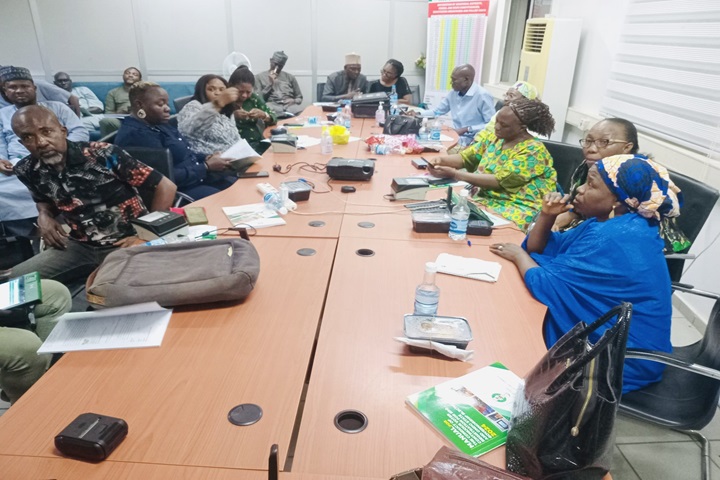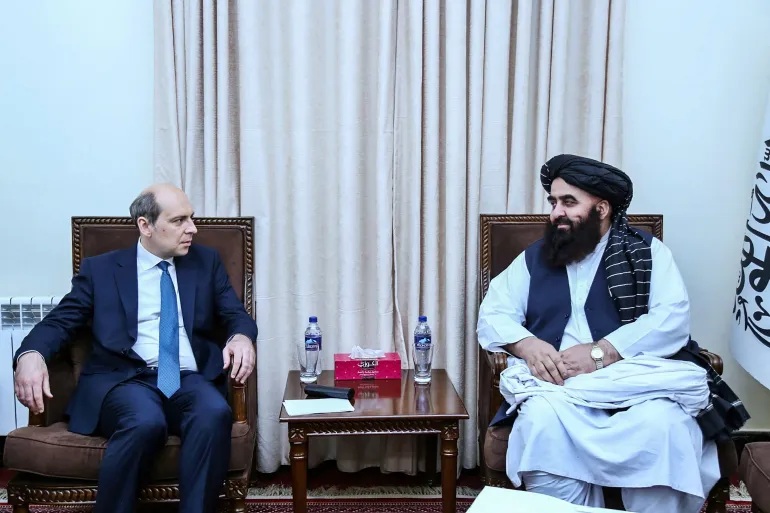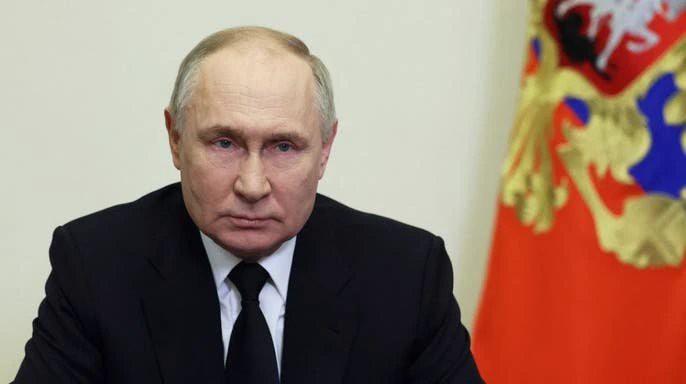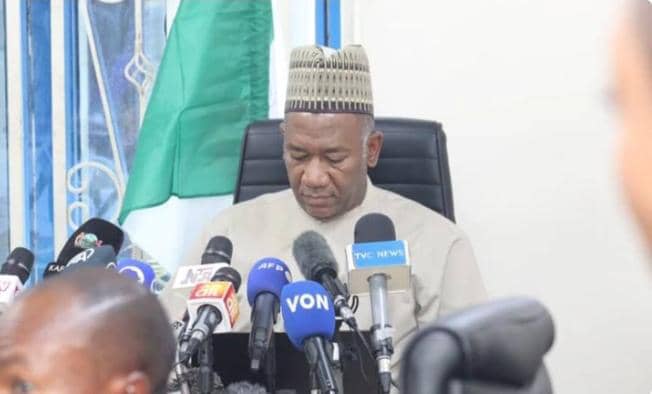Featured
WHO issues new measures to control Mpox spread
DDM News

The World Health Organisation (WHO) has introduced fresh recommendations to help countries control the spread of Mpox.
Diaspora digital media (DDM) revealed that these measures aim to strengthen efforts in areas experiencing sustained community transmission, clusters of infections, or travel-related cases.
Mpox is a viral disease caused by the monkeypox virus, leading to rashes and flu-like symptoms.
This disease primarily affects central and western Africa, where outbreaks have been ongoing for years.
Public health experts warn that without widespread vaccination, Africa may struggle to contain the spread of Mpox.
Healthcare professionals express concerns over the slow response and limited vaccine availability for high-risk populations.
The absence of dedicated treatment centres has worsened the situation in affected communities.
WHO released the latest recommendations after the third meeting of the International Health Regulations (2005) Emergency Committee on Mpox.
These updated guidelines support existing global strategies for Mpox control and prevention.
The recommendations will remain in effect until August 20, 2025, as part of WHO’s broader global health strategy.
WHO Director-General Tedros Ghebreyesus said these measures align with the organisation’s strategic framework for Mpox prevention and control.
The 2024-2027 strategic plan focuses on reducing transmission, improving surveillance, and increasing healthcare accessibility.
WHO’s key recommendations to tackle Mpox
WHO urges countries to secure political commitment and allocate adequate resources to fight Mpox effectively.
Nations that reported cases in the past four weeks should intensify prevention and response efforts.
Strengthening national, state, and local emergency coordination is essential for a successful Mpox response.
WHO’s global strategic preparedness and response plan for 2024 supports improved coordination among all stakeholders.
Governments must enhance collaboration with partners engaged in Mpox prevention and control.
Monitoring the effectiveness of Mpox response strategies at all administrative levels is a priority.
WHO recommends expanding access to affordable and accurate diagnostic tools for detecting Mpox cases.
Improving Mpox testing and diagnosis
Rapid and accurate diagnosis plays a crucial role in controlling Mpox transmission.
Delays in testing contribute to prolonged outbreaks and make containment efforts more difficult.
WHO advises countries to strengthen laboratory systems and expand the availability of Mpox testing kits.
Efficient transportation of samples to testing facilities is necessary for timely diagnosis.
Public health officials stress that faster detection will improve response strategies and reduce transmission rates.
Expanding laboratory capacity in affected regions will help identify cases more efficiently.
Early diagnosis allows health officials to implement quarantine measures and prevent further spread.
Strengthening contact tracing and patient support
Identifying and monitoring individuals exposed to Mpox is essential for breaking transmission chains.
WHO recommends improved contact tracing to track and manage potential cases.
Supporting suspected, clinically diagnosed, or laboratory-confirmed Mpox patients is a key priority.
Governments must provide infected individuals with adequate medical, nutritional, and psychosocial support.
WHO advises isolating patients in care centres to prevent further community transmission.
Where institutional isolation is not possible, patients should receive resources for safe home-based care.
Public awareness campaigns must educate people about Mpox symptoms and preventive measures.
Challenges in the fight against Mpox
Several challenges hinder global efforts to eliminate Mpox.
Vaccine shortages remain a major obstacle in controlling outbreaks.
Many African countries struggle to secure sufficient Mpox vaccine doses.
Wealthier nations have stockpiled vaccines, creating an unequal distribution of resources.
Experts call for a more coordinated global effort to ensure fair vaccine access.
Limited healthcare infrastructure in affected regions has slowed response efforts.
Many communities lack the facilities needed for effective isolation and treatment.
Misinformation and stigma prevent some infected individuals from seeking medical attention.
Fear of discrimination has led to undetected cases and continued transmission.
Health authorities must intensify awareness campaigns to combat misinformation about Mpox.
Urgent need for global action
The WHO’s new recommendations highlight the urgent need for stronger global action against Mpox.
Governments must prioritise Mpox prevention and response efforts to curb the outbreak.
Increased funding and strategic partnerships will improve control measures worldwide.
Stronger surveillance systems will help detect and contain future outbreaks more effectively.
International organisations must work closely with governments to support healthcare facilities in affected regions.
WHO remains committed to assisting countries in implementing effective Mpox prevention strategies.
The success of these recommendations depends on swift action from governments and stakeholders.
The coming months will determine whether these guidelines can significantly reduce Mpox transmission.
Global cooperation will be crucial in ensuring long-term Mpox control and prevention.
WHO encourages all nations to adopt these measures to prevent further outbreaks.
Implementing these strategies will protect vulnerable populations and reduce the spread of Mpox.
Public health officials must remain vigilant in monitoring new cases and responding swiftly.
If countries act decisively, Mpox outbreaks can be contained more effectively.
The WHO’s guidelines provide a clear roadmap for tackling Mpox at the global level.
Preventing future outbreaks requires continuous investment in healthcare infrastructure and public awareness campaigns.
Governments must ensure that Mpox vaccines reach those most at risk.
Public trust in healthcare systems is essential for effective disease control.
With strong commitment and coordinated action, the world can significantly reduce Mpox cases.
The WHO will continue evaluating the effectiveness of these recommendations over the coming months.
Governments and healthcare agencies must prioritise Mpox containment efforts to prevent further spread.
Swift and effective implementation of these strategies will determine global success in combating Mpox.
By following WHO’s recommendations, countries can strengthen their public health responses and protect their citizens.
For Diaspora Digital Media Updates click on Whatsapp, or Telegram. For eyewitness accounts/ reports/ articles, write to: citizenreports@diasporadigitalmedia.com. Follow us on X (Fomerly Twitter) or Facebook












